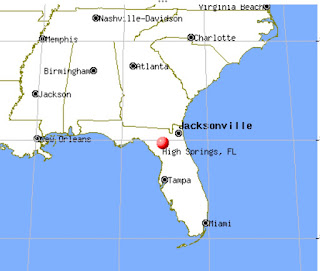Florida Oranges-A Colorful History by Erin Thursby - 2019 - A Post in Honor of The 105 Birth Anniversary of my and my brother’s Mother
A post in honour of the birth anniversary of my mother, January 3, 1916- No finer Floridian ever lived.
Florida Timeline
8000 BC - First Native American settlement, near Sarasota
1000 AD - there are nine distinct tribes
1500 - estimated population of the state was 375,000- 150,000 speak Timuca
April 2, 1513 - Ponce de Leon lands somewhere between Melbourne and Jacksonville. In time the indigenous population will be reduced to near zero, from disease and warfare.
1521 - first colony, from Spain, near St. Augustine
1579 - The cultivation of oranges, introduced from Spain begins. By 1835 millions of oranges were being shipped north and to Europe, for the next hundred years oranges, cattle and timber were the major sources of cash
1624 - First African American born, in St. Augustine
1763 to 1765- England Owns west Florida panhandle area
Based on research by others in the family and history, I conjecture my maternal ancestors first entered Florida, coming from. Georgia where they arrived around 1650, about 1815.
1808 - importation of slaves into USA is banned, a very large trade in slaves smuggled in from Cuba begins
1821 - USA acquired Florida from Spain.
1822 - Tallahassee is chosen as the territory capital, being half way between the then major population centers of St. Augustine and Pensacola
1835 Second Seminole War begins, by 1842 most Seminoles were shipped west but some escaped into the Everglades. The
make up of the Seminoles was largely not Native originally to Florida but a mixture of escaped slaves and Creeks from Georgia and South Carolina.
March 3, 1845 - Florida becomes a state, slavery legal.
1859 - by the end of the third Seminole War the around four hundred survivors retreat to the Everglades
Population of Florida 1861. - 154,494 - 92,741 Free, 61,75 enslaved
January 10, 1861 Florida suceeds from The Union. Per capita, Florida sent The most men into war, 15000. It was then the least populated southern state.
In January 2019, in consultation with Max u, it was decided every January there would be a post about a book in tribute to our Mother. Our mother was born in a very small town in northern Florida on Jan 3, 1916. We have traced our maternal ancestral lines back to 1820 when an ancestor started the first public library in the central Florida era. A knowledge of history indicates our prior maternal ancestors came to the USA from the UK in the 1600s, probably in part as bound servants. Somehow they wound up in South Georgia. After the American Revolution people from that area began to enter then Spanish Florida, which the USA acquired in 1819.
Our mother was born in High Sorings, Florida on January 3, 1916. The population of the town then was about 1750. Our maternal grandfather was a Railroad Engineer for The Savannah, Florida & Western Railway. Moving oranges to Northern markets was an important aspect of the business of the railroad.
High Springs, Florida in 1916
Florida Oranges-A Colorful History by Erin Thursby is a through account of cultivation of oranges in Florida. I learned that oranges were first planted about 1600 by the Spanish. The objective was to prevent scurvy. Soon oranges were widely cultivated. We learn why grafting was better than growing trees from seeds. Slaves were widely used by owners of large groves.
Thursby showed me how hard freezes in the 1890s in north Florida pushed growers south. She does a very well done chronological and regional account of the history of oranges in Florida.
Her book will be of interest to those into Florida history.
Erin Thursby
Erin is the Executive Director of GastroJax, the organization that puts on GastroFest, a freelance writer and food editor for EU Jacksonville. She's been a food and entertainment writer for over 10 years and she's thrilled to be writing for Edible Northeast Florida.
Mel Ulm







No comments:
Post a Comment